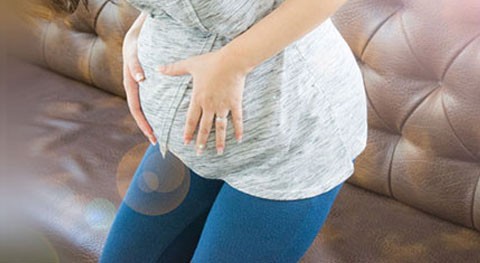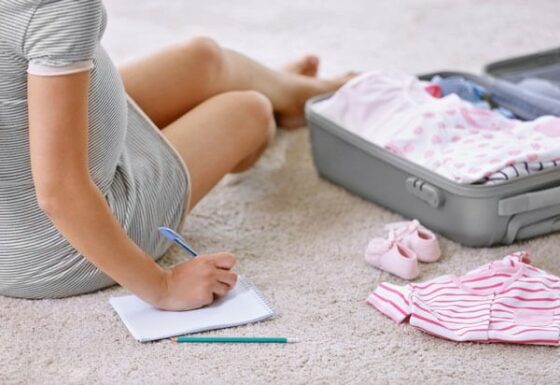3 Stages Of Labour & What To Expect
Labour and childbirth may feel scary. It can help to know what to expect when you arrive in hospital.

The first signs of labour can be both exciting and scary. After many long months of pregnancy, your body is finally telling you that you’re about to meet your new baby. As a new mum, it may be tempting to rush to hospital straight away. However, it is generally recommended that you remain at home – where you are more comfortable – for as long as possible.At some point, unless you are having a home birth, you will have to make the trip from home to hospital. Here, we look at when you should get in the car and what you can expect when you arrive at the hospital.Remember, though, that every birthing experience is unique.
When to go to hospital
It can be hard to know when you should go to hospital. Generally, it’s advised to get moving to the hospital once you are getting three strong contractions in the space of 10 minutes (or if your waters break before this and they’re green, black, or have fresh bleeding). Prior to this, you’re still in the first stage of labour – in what’s called the latent phase, and active labour can still be some time away.If you live a long way from the hospital, you may want to leave a little earlier. Or, if you’re concerned about the progress of your labour or not sure when you should go, simply call your midwife or the hospital. They will help you decide what to do.
What happens when you arrive
When you arrive at hospital, the next steps can depend on how far along you are. It can also depend on the hospital’s individual policies and procedures. If possible, ask for a tour of the hospital well before your due date and ply your midwife with questions about what happens when you get to hospital.If it looks like you are already in the transition phase of labour, then you’ll be whisked off to a delivery room and (fingers crossed) your baby will be born soon afterwards.If you’re still in the active phase and not quite at transition (8-10cm) then you can likely expect the following:
- You will go through a brief admission procedure and will be taken to a birthing room
- Your midwife will ask for a sample of urine, and will also check your blood pressure, temperature and pulse
- Your midwife will check your baby’s position, and may do an internal check to see if your cervix has dilated
- Your contractions will be palpated and timed
Progressing through the stages of labour
In hospital, all going well, you will progress through the following stages of labour, with your doctor or midwife on hand to provide support where needed:Stage 1 – You should be midway through the ‘active phase’ of stage one when you arrive in hospital, which is characterised by strong, painful contractions three or four minutes apart. During this phase, your cervix should dilate from 3cm to about 8cm. Then, you move into the ‘transition phase’, where you experience intense contractions that can feel like they are coming one after another. During transition, your cervix dilates from 8cm to fully dilated.Stage 2 – This is the ‘birthing stage’, where your contractions slow down a little and your baby is finally born. You may feel a strong urge to push; your midwife or doctor may guide you through this process but often the urges are automatic. As your baby’s head crowns, your midwife or doctor is likely to recommend you pant or slow your breathing to help prevent tearing by birthing too quickly.Stage 3 – During this stage, your placenta is delivered. For most low risk women, a physiological birthing of the placenta is recommended which is where your body does the work when it’s ready. In some cases, your midwife or doctor may recommend active management of the placenta where an injection of oxytocin is given to help remove the placenta and clamp the uterus down – to speed it up and reduce blood loss. It can pass in a blur because you are so focused on your new bundle of joy!
After the birth
How long you stay in hospital after the birth of your baby can depend on whether there were any complications during the birth. Some new mums leave on the same day; others stay a few days. If you or your baby are unwell, you may have to stay longer.While you are in hospital, it is a great time to bond with your baby and learn all the new skills of parenthood – like breastfeeding, nappy changes, bathing and more. It gives your body a chance to recover, too.
References:https://www.betterhealth.vic.gov.au/health/healthyliving/pregnancy-labourhttps://www.thewomens.org.au/health-information/pregnancy-and-birth/labour-birth/stages-of-labour/



